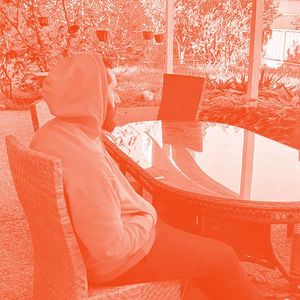As the Delta strain surges, young people in Sydney's south-west speak out.
A month into a lockdown targeting south-west Sydney, young people where I live are frustrated and distrustful of the information they receive on the health crisis.
"It has gone on for one-and-a-half years and they cannot understand for the life of them their trail of destruction," said George, 27, a store manager in Sydney's CBD currently working from his south-west Sydney home. Forbidden from leaving his local government area (LGA) under the latest NSW health regulations, he's frustrated and distrustful of the government's assessment of the new Delta threat.
Charbel Antouny, a 26-year-old software engineer from Strathfield says "not being able to get out and live life is incredibly frustrating" and it is negatively impacting his mental health. He questions whether the risks outweigh the collateral damage being wrought.
I'm 20 and work part-time in retail while I study. I'm also in a hard lockdown LGA. I'm frustrated.
After a year in which people my age were constantly told to step back, because every adult who was older than you was the priority, the government's tune has suddenly changed. Now, Premier Gladys Berejiklian and Chief Medical Officer Dr Kerry Chant are all about young people stepping forward to get vaccinated, saying the Delta variant "does not discriminate" against age, and unlike "in previous strands, we had not seen younger people get the virus in the way they are [now] or transfer [it]."
'The situation is hard for us younger people … but I truly don't know what the best way is to approach the situation.'
Shahin Kamal, 21, a commerce and law student from Edensor Park, has mixed emotions about the decisions that now govern his life.
"Considering the fact that this virus was discovered over a year ago and the fact that we have resorted to the same seemingly ineffective methods to deal with it, that's poor from our government, vaccinations have been poor," he says.
Despite his dissatisfaction with the government's performance, he can't believe those in his age group "who question [health] professionals who have worked their whole lives but believe some random bloke on TikTok who's performed one Google search and decides to preach it all over social media as if they've performed a Harvard study."
A recent review of the 395 NSW Delta variant cases from June 15 to July 7 by The Sydney Morning Herald showed nearly 40 per cent of cases were aged 20-39. The Guardian reported eight of the 37 hospitalised during that time were under 35.
Not everyone is convinced the numbers paint an accurate picture of the situation. "There's not enough data to support these [statistics] as it comes from a much smaller sample size compared to total hospitalisations from COVID last year," argues George, who has no medical background, in an emailed response. "How many had pre-existing conditions? Compare this to an Australia that experienced its worst flu season on record in 2019 … where no one blinked an eye."
Software engineer Antouny believes "the current situation is disastrous, and the collateral effects of lockdown are far outweighing the risks presented by COVID.
"I haven't been able to access what I deem essential services such as practising my religion … the inability to physically meet people has also made me feel isolated," he explains. "Not being able to get out and live life is incredibly frustrating and negatively impacting my mental health."
He believes the economic impact will be felt for years to come, while the inability to get out will dramatically increase rates of suicide, domestic violence and depression, all as a result of a lockdown intended for "public safety".
"Is it really a threat when over 99 per-cent of individuals recover normally and livelihoods in every other sense continue to diminish? I think not."
The threat may become more real with the news on Wednesday of the sudden death of Aude "Ady" Alaskar, 27, from COVID, at his Liverpool home as he neared the end of his infectious isolation period.
Young Strathfield-based pharmacist brothers Joseph and Anthony Bejjani, both in their 20s, have worked long hours in recent weeks as the state's COVID crisis worsened.
"Those that think 'it is just a mild cough for young people' are not only selfish and ignorant to the statistics, but they also fail to understand that this virus exudes long-term respiratory complications," said Anthony Bejjani, who had planned to be skiing in New Zealand this month.
Joseph Bejjani added: "The virus is ruthless and does not slow unless active measures are taken to stop the spread. Ask the right people for the answers, people who have studied for years on end."
Looking at those who challenge the health information, commerce student Kamal says: "Look, it's not that I don't understand where certain people are coming from, I do, however, at the end of the day there are health professionals, and the way some people have expressed themselves is ridiculous … it shows just how gullible and ignorant our society has become.
"The situation is hard for us younger people … but I truly don't know what the best way is to approach the situation."
It's as if the past one-and-a-half years have been a case of Groundhog Day. The 11am Premier's updates roll on, projecting a harrowing cycle of never-ending cases, ever-increasing hotspots and always-tightening restrictions.
Is it any wonder we feel uncertainty, distrust and utter and absolute frustration.
A fourth year student studying a Bachelor of Media (Communication & Journalism) at UNSW in Sydney, George is obsessed with all things entertainment. His blog, Magic of the Screen, is dedicated to the analysis, review and discussion of films amongst other media. Catch him at the Ritz or even cooped up at home watching Netflix.
